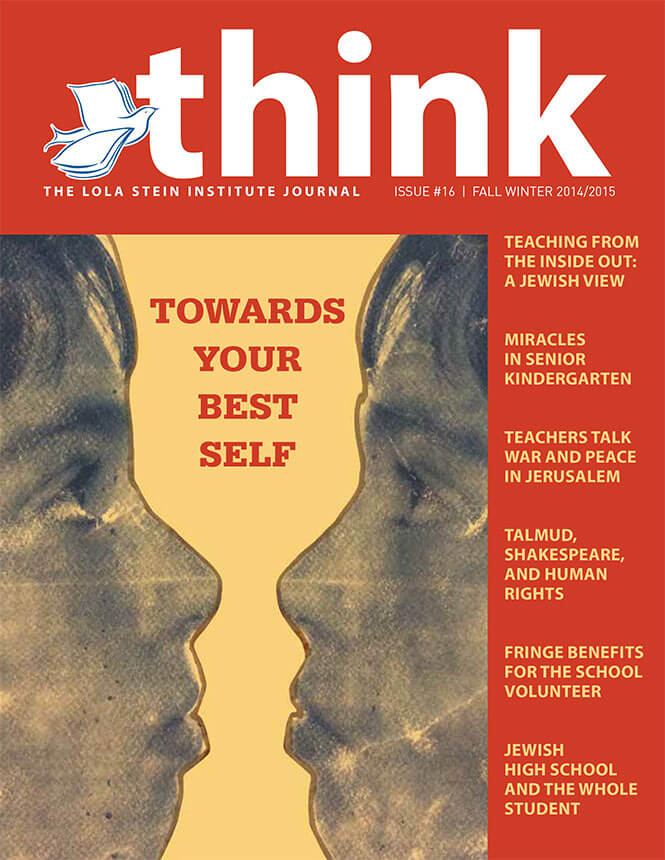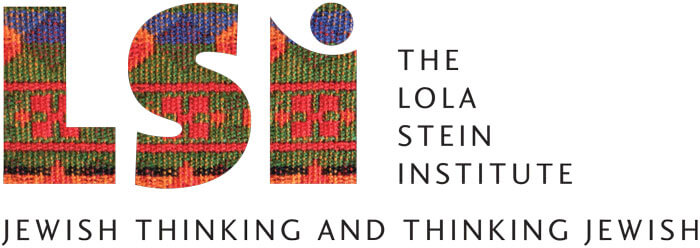- How We Teach

- First Column
- Second Column
- Third Column
- Case Studies

- First Column
- Second Column
- Culture & Community

- First Column
- Second Column
- News & Views

- Admissions

- First Column
- Second Column
- Support Us

- About

- First Column
- Second Column
- Parent Hub
- Attend an Open House
- Take a Tour
- Donate Now
- Calendar
- Blog
- 416-635-1876
- Search
Saving and Sharing All Day Long
Cultivating Kindness at Home and at School
As parents of two young children, we share a goal: we want our kids to be compassionate. We want to cultivate in them a sense of chesed (kindness and empathy). We are aware that our various, and often difficult, choices as parent indelibly influence our children.
To demonstrate to our children just how important the value of chesed is, we make it a priority to engage them in meaningful and direct experiences of giving. Meanwhile, we know that every day we also deliver indirect unspoken messages to them. Sometimes these unspoken messages are even stronger and more powerful than the former.
A year ago, we began what we call our “Save and Share Project.” Our children, ages 6 and 4, painted and personalized two small wooden boxes. One is labelled “share” and is essentially a tzedakah (donations) box; the other is labelled “save” and holds each child’s personal allowance. We give them a number of coins each week and they choose how much to put in each box. How much will they save for that coveted new Beyblade, and how much will they store away for “the man on the street”? It is not an easy choice for an adult, let alone a child.
When the “share” box is almost full, we go downtown on a family excursion and use our “super-hero” eyes to find homeless people with whom to share our coins. The children are eager to open their boxes, but first they must engage in a casual and respectful conversation with the recipient. The kids ask if they can explain their project and the recipients are generally happy to speak with us, and they are grateful to accept the gift. This casual chat models how tzedakah includes respect; when an adult is receiving money from a child, the situation demands we address this important aspect of giving.
Our kids attend The Toronto Heschel School, which also focuses on modelling and cultivating compassion and empathy in its students, beginning with the youngest in Junior Kindergarten. When our son stayed home with the flu last year, we were touched to receive a phone call from his classmates and teachers checking in on him and wishing him well. Each of the sixteen children left a kind, and sometimes silly, message for him. The smile on his face taking it all in was priceless. This small but beautiful gesture left our little guy feeling included and cared for by his classroom community; it taught him how it feels to be cared for by others when needing it most.
This display inspired us to take an initiative to the school. Beyond our family projects, we both work in the Toronto Jewish community with not-for-profit organizations, Ve’ahavta and The House, both of which focus on education and social action initiatives. When we offered to lead hands-on care experiences for members of our children’s school community, we were thrilled (and impressed) when Toronto Heschel accepted our proposal. We planned to celebrate Purim through the “Pay It Forward Purim” program with Grades 7 and 8 students, their families and teachers.
On a cold winter night last year, we loaded mishloach manot (gift baskets) made by the younger grades into our cars and Team Heschel headed downtown. We split into smaller groups and distributed two gift baskets to each homeless Torontonian we encountered. We gave one for the recipient to keep, and one for him or her to “pay it forward” by giving the second basket to someone else in need.
We were hoping that empowering a recipient to become a “giver” might initiate small ripples of change and kindness in their street community. This very abstract potential opened our volunteers’ eyes. The students and their families began to view acts of kindness from a wider perspective, and we talked about the different kinds of implications that might flow from the simple act of handing over a coin or a gift. It also taught us that people who live on the street are some of the most generous people that we know and that they usually only take what they need at that moment.
Another group of “chesed recipients” that greatly appreciates our acts of kindness are the elderly. Once a month some wonderfully loyal volunteers join us at the Cummer Lodge nursing home for a program that The House has facilitated over the last seven years. Working on on one, we encourage elderly men and women to get our of bed and join a joyful Jewish service in the auditorium. Our volunteers help the elderly residents get ready and then escort them to where live music and young smiles greet them.
Not surprisingly, young volunteers sometimes find it uncomfortable to witness the challenges of aging – dependency, anxiety, and sometimes startling yells. It’s even a little frightening. Nonetheless, soon after each Sunday begins, the seniors transform and so do the volunteers. With music and singing, storytelling and conversations, smiles shine out from behind frowns of doubt. No other place int he world seems like a more “right” place to be at that moment. It is a profound and uplifting experience for both the seniors and the volunteers.
Needless to say, the decision of where we place our children to spend their whole day, every day, is the kind of indirect unspoken message that has an immense influence on how our children mature. They see the behaviours modeled daily at their school and they are naturally inclined to mimic them and make them their own. We are relieved and pleased that the ethos of social conscience and direct engagement that we prize for our children and our volunteers are deliberate and vibrant at Toronto Heschel.
This culture of chesed lurks in many of the activities that the Heschel kids do every day. Whether it is in the famous opening of doors that visitors continually remark on as they pass students in the school hall, or the litter and recycling chores that are as structured and stringent as kashrut, we see a participatory culture of caring coming home to us and we are happy. We feel that choosing a school for its lived values – not just its stated plan – is essential when strategizing to cultivate Jewish-inspired and solid humanitarian values in our children.
In partnership with The Toronto Heschel School, The House, Ve’ahavta, and our synagogue, the Village Shul, we will continue to introduce our children to meaningful personal experiences. We hope that these acts of chesed will build their character, their Jewish identities, and their participation in the community at large.
Coby Segall leads an engineering innovation team at Motorola Solutions and social-action programs at The House. Robyn Segall directs Communication and Operations at Ve’ahavta and teaches yoga. They continuously look to actualize Jewish values.
PREVIOUS ARTICLE
The Fringe Benefits of Volunteering at SchoolSpecial Feature
Democracy and Justice in the Junior High ClassroomBeyond Social Media ActivismOur Sages Tell Us
Cultivating Kindness at Home and at SchoolSaving and Sharing All Day LongColumns
Perspectives
 The Lola Stein Institute (LSI) is a centre of inventive educational thinking and addresses the challenge to re-frame schooling for the exigencies of our times.
The Lola Stein Institute (LSI) is a centre of inventive educational thinking and addresses the challenge to re-frame schooling for the exigencies of our times.









